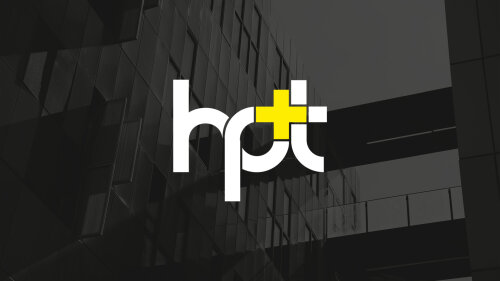Best Information Technology Lawyers in Graz
Share your needs with us, get contacted by law firms.
Free. Takes 2 min.
List of the best lawyers in Graz, Austria
About Information Technology Law in Graz, Austria
Graz, the second-largest city in Austria, is a vibrant hub for technology and innovation. With a growing number of startups, tech companies, and research institutions, the city has a dynamic Information Technology (IT) sector. As such, IT law in Graz covers various aspects including data protection, cybersecurity, intellectual property, software development contracts, and e-commerce regulations. The legal framework is designed to foster innovation while ensuring compliance with EU regulations, particularly the General Data Protection Regulation (GDPR).
Why You May Need a Lawyer
There are several situations where individuals and businesses may require legal assistance in the field of Information Technology:
- Data Protection Compliance: Ensuring adherence to GDPR and other data protection regulations.
- Intellectual Property Rights: Protecting software, inventions, trademarks, and copyrights.
- Cybersecurity: Managing legal issues related to data breaches and cyber attacks.
- IT Contracts: Drafting, reviewing, and negotiating contracts for software development, licensing, and other services.
- E-Commerce: Navigating the legal landscape of online business, including consumer protection and digital transactions.
- Dispute Resolution: Addressing conflicts that arise in the IT sector, be it with employees, clients, or third parties.
Local Laws Overview
Graz, as part of Austria, adheres to national and European Union (EU) laws governing Information Technology. Key aspects of these laws include:
- General Data Protection Regulation (GDPR): A fundamental EU regulation that governs data protection and privacy for all individuals within the EU.
- Telecommunications Act: Covers the regulation of electronic communications services and networks.
- E-Commerce Act: Sets the legal framework for online business activities, including information requirements and liability issues.
- Copyright Act: Protects software, databases, and other digital content from unauthorized use.
- Cybersecurity Act: Promotes the security of network and information systems across the EU.
Frequently Asked Questions
1. What are the main components of GDPR?
GDPR includes principles such as data minimization, accuracy, storage limitation, and data integrity. It also emphasizes the rights of data subjects, including access to their data and the right to be forgotten.
2. How can I ensure my business is GDPR compliant?
Businesses should conduct data protection impact assessments, implement data protection by design and by default, appoint a Data Protection Officer (if required), and maintain records of data processing activities.
3. What should be included in an IT contract?
An IT contract should cover deliverables, timelines, payment terms, liability clauses, intellectual property rights, confidentiality, and dispute resolution mechanisms.
4. What are the penalties for non-compliance with GDPR?
Penalties for non-compliance can be severe, with fines up to €20 million or 4% of the global annual turnover, whichever is higher.
5. How do I protect my intellectual property in Austria?
Register your software, patents, trademarks, and designs with the appropriate Austrian authorities and ensure you have clear terms in contracts regarding ownership and use of intellectual property.
6. What are the legal requirements for running an e-commerce site?
E-commerce sites must provide clear information about the seller, terms and conditions, return policies, and ensure secure transaction processes.
7. What actions should I take after a data breach?
Immediately consult with a legal expert, notify the relevant data protection authorities, inform affected individuals, and implement measures to prevent future breaches.
8. Can I transfer data outside the EU?
Yes, but you must ensure the receiving country has adequate data protection standards or use standard contractual clauses approved by the EU.
9. How do I deal with software piracy?
Legal action can be taken under the Copyright Act. You should also implement technical measures to prevent unauthorized use and distribution of your software.
10. Are there any specific regulations for cybersecurity in Graz?
Yes, the Austrian government has adopted the NIS (Network and Information Systems) Directive to enhance cybersecurity measures and requirements for operators of essential services and digital service providers.
Additional Resources
For more information and assistance, you can reach out to the following:
- The Austrian Data Protection Authority (DSB): The main body for data protection compliance and complaints.
- Austrian Wirtschaftsservice (aws): Provides support for intellectual property protection.
- Styrian Business Promotion Agency (SFG): Offers guidance and resources for technology startups in Graz.
- European Union Agency for Cybersecurity (ENISA): Offers guidelines and best practices for cybersecurity.
Next Steps
If you need legal assistance in the field of Information Technology in Graz, Austria, consider the following steps:
- Consult with a specialized IT lawyer: Find a legal expert with experience in IT law and a strong understanding of both local and EU regulations.
- Evaluate your needs: Clearly outline your legal concerns or issues to get the most tailored advice.
- Prepare necessary documentation: Gather all relevant contracts, policies, and correspondence related to your issue.
- Stay informed: Keep up-to-date with changes in laws and regulations that may impact your business.
By following these steps, you can effectively navigate the legal landscape of Information Technology in Graz, Austria, and ensure your business remains compliant and secure.
Lawzana helps you find the best lawyers and law firms in Graz through a curated and pre-screened list of qualified legal professionals. Our platform offers rankings and detailed profiles of attorneys and law firms, allowing you to compare based on practice areas, including Information Technology, experience, and client feedback.
Each profile includes a description of the firm's areas of practice, client reviews, team members and partners, year of establishment, spoken languages, office locations, contact information, social media presence, and any published articles or resources. Most firms on our platform speak English and are experienced in both local and international legal matters.
Get a quote from top-rated law firms in Graz, Austria — quickly, securely, and without unnecessary hassle.
Disclaimer:
The information provided on this page is for general informational purposes only and does not constitute legal advice. While we strive to ensure the accuracy and relevance of the content, legal information may change over time, and interpretations of the law can vary. You should always consult with a qualified legal professional for advice specific to your situation.
We disclaim all liability for actions taken or not taken based on the content of this page. If you believe any information is incorrect or outdated, please contact us, and we will review and update it where appropriate.











